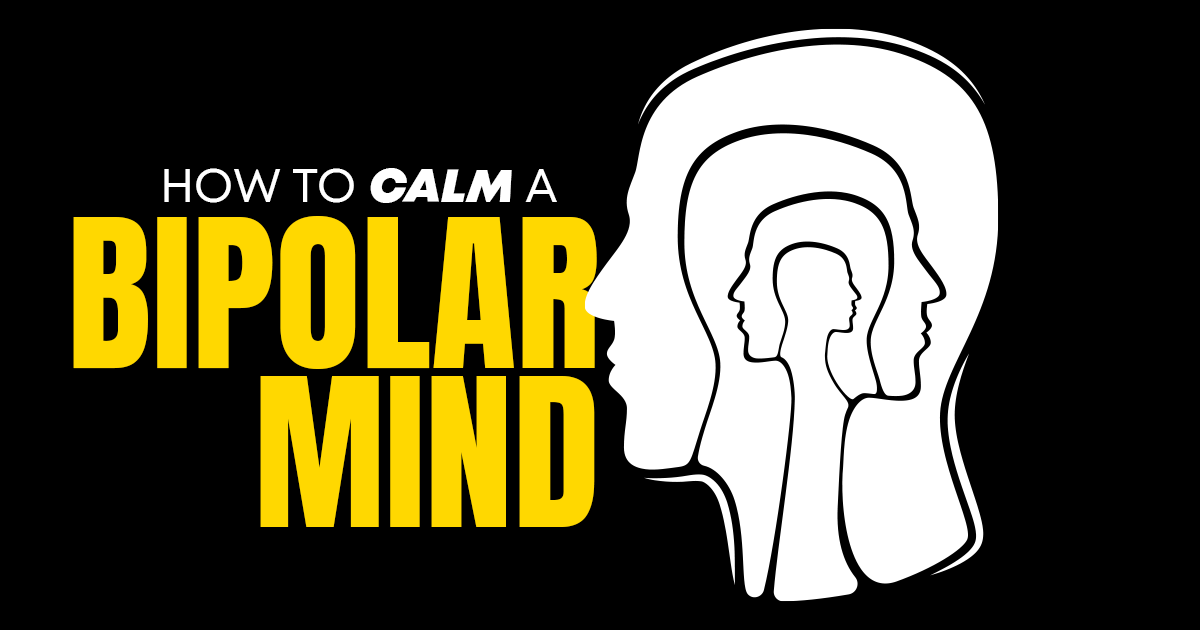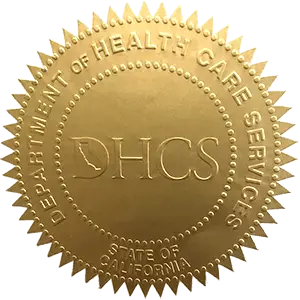Bipolar disorder is a complex mental illness with extreme shifts in mood. As you explore how to calm a bipolar mind, you can make lifestyle changes, but these don’t replace the need for medical treatment. Treatment for bipolar can include medication and ongoing therapy, in addition to things you might do on your own to manage your manic symptoms or episodes of depression.
What is Bipolar Disorder?
Bipolar disorder, previously called manic depression, is a mental health condition that causes extreme emotional highs and lows. Low moods are depression. Emotional highs are called “mania” or “hypomania.”
When experiencing depression, a person may lose interest in activities they once enjoyed. They might feel hopeless or sad.
When someone is experiencing mania or hypomania, which is less intense than mania, they will feel energetic, euphoric, and potentially irritable.
The mood swings that characterize bipolar can affect activity, judgment, behavior, sleep, and the ability to think clearly or rationally.
Bipolar is considered a chronic, lifelong condition, but it can be managed with a treatment plan.
There are several types of bipolar. These include:
- Bipolar I includes at least a single manic episode that may come before or after a hypomanic or major depressive episode. Some people with bipolar I may experience psychosis triggered by mania. Psychosis is a break from reality.
- Bipolar II is when someone experiences at least one episode of major depression and at least one hypomanic episode but without episodes of mania.
- Cyclothymic disorder is when there have been at least two years of multiple periods of hypomania and depressive symptoms. The depressive symptoms aren’t as severe as major depression.
- Other types of bipolar mental disorders include ones induced by a medical condition, like multiple sclerosis or a stroke, or conditions induced by drugs or alcohol.
Symptoms of Mania and Hypomania in Bipolar Disorder
Mania and hypomania are distinct from one another but have the same symptoms. Mania is more severe and impacts functioning more than hypomania; it may also trigger psychosis and require hospitalization.
A manic or a hypomanic episode includes three or more symptoms, which are:
- Being abnormally wired, jumpy, or upbeat
- Increased energy, activity level, or agitation
- A euphoric sense of self-confidence and well-being
- Generally elevated mood
- Reduced need for sleep
- Being unusually talkative
- Racing thoughts
- Easily distracted
- Problematic decision-making, such as spending large amounts of money or risk-taking behaviors
Symptoms of Depression in Bipolar Disorder
When someone experiences a major depressive episode, the symptoms are severe to the point they noticeably affect daily activities, like relationships, school, or work.
A bipolar depression episode will typically include five or more of the following symptoms:
- A depressed mood is marked by feeling empty, sad, or hopeless—in children and teens, this might appear as irritability
- A loss of interest in activities or no pleasure from things that were once enjoyable
- Weight loss, weight gain, or an increase or decrease in appetite
- Changes in sleep pattern, including sleeping too much or too little
- Slow behavior or restlessness
- Loss of energy
- Fatigue
- Feeling guilty or worthless
- Inability to concentrate
- Indecisiveness
- Suicidal ideations
Bipolar Medication and Treatment
Everyone’s unique, so their bipolar medication and treatment should be tailored to their different needs, but overall, some strategies are often used.
- Bipolar prescription drugs usually fall into three classes. There are mood stabilizers, antipsychotic drugs, and, less often, antidepressants for bipolar.
- Treatment will often include a combination of medication, including at least one that’s a mood stabilizer or an atypical antipsychotic, plus talk therapy. Talk therapy is also known as psychotherapy.
- Lithium carbonate and valproic acid are the most often used drugs for bipolar disorder.
- Antidepressants are less often used than antipsychotic medication or mood stabilizers because they aren’t well-studied in people with bipolar.
- Medication is the foundation of treating bipolar, but psychotherapy is also incredibly important. Psychotherapy helps people understand how to better cope with their symptoms and manage their episodes.
- Certain forms of therapy work especially well for improving function in people with bipolar illness. These include cognitive-behavioral therapy, interpersonal/social rhythm therapy, family therapy, and group therapy.
Managing Your Bipolar Symptoms In Other Ways
Often people want to know if there’s an option for bipolar disorder treatment without medication. It’s not likely. A health care team will advise almost everyone with bipolar to take medication, and this is what helps you keep your symptoms under control. Attempting any bipolar treatment without medication or going against the guidance of your care team can be extremely dangerous.
While you should always follow your treatment plan and take your medications as prescribed, there are certain things you can also do to calm your mind when you have bipolar and feel more in control.
How to Calm a Bipolar Mind Naturally
Again, these aren’t replacements for medication and therapy—they’re things you can do in addition to your treatment plan.
- Learn your triggers. Everyone has different triggers, and common ones for bipolar mood swings include stress, caffeine and alcohol, certain medications, seasonal changes, thyroid problems, and a lack of sleep. When you learn what your triggers are, you can begin to eliminate or reduce them to calm your mind.
- Keep a regular schedule. Bipolar people tend not to do well when they have a lot of changes in their routine and schedule. The more you can follow a solid schedule, the calmer you’re likely to feel.
- Control your stress as much as you can. Maybe you accept help around the house when offered, or you could find an activity you do every week that helps you manage stress, like yoga or long walks.
- When you’re overly tired, it’s a trigger for mania in some people with bipolar. Make sleep one of your main priorities. Set a bedtime for yourself, and attempt to wake up at the same time every day. Have a pre-bed routine that you follow every night and consistently get the same number of hours of sleep.
- Physical activity is excellent for improving your mood and helping you clear your mind and keep your thoughts under control. You don’t have to spend hours at the gym to get the benefits of exercise. You can do a wide range of activities that will help your bipolar disorder symptoms.
- Avoid caffeine, drugs, and alcohol, all of which can trigger mood episodes and might affect how your medicines work.
- Start journaling. Journaling is an excellent way to note how you’re feeling and what you’re going through, and you can also note things like what you’re eating and when you’re sleeping. You might be able to identify patterns in your life.
- People with bipolar and other mood disorders need to eat a healthful diet. When you have bipolar disorder, you’re at a higher risk of other chronic health conditions like heart disease and diabetes. Not only will a healthy diet help your mental health in your daily life, but also your physical health.
- Talk to your healthcare provider about taking any supplements. Some people find omega-3 fatty acids, magnesium, and certain vitamins help them feel their best.
Learning how to calm a bipolar mind takes time, work, and the right clinical treatment, but it is also possible. You can manage your bipolar symptoms with a combination of approaches, including medication, therapy, and a healthy lifestyle.
If you’d like to learn about treatment for bipolar and personalized plans available in Southern California, Story Wellness is available to talk by calling (866) 476-2823 when you’re ready. We can connect you with a mental health professional so you can receive treatment for bipolar episodes and improve your quality of life.





